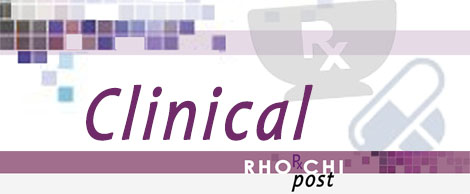
|
The Silver Age of Antibiotics...
November 1, 2014 - Featured , In the News / Politics By: Andrew Leong, Staff Writer — This year, the FDA approved three new antibiotics to treat acute bacterial skin and skin structure infections (ABSSSI) caused by Staphylococcus aureus, including MRSA. They are dalbavancin (DalvanceTM), tedizolid phosphate (SivextroTM), and oritavancin (OrbactivTM). Dalbavancin was approved on May 23, 2014 and is administered intravenously in two doses (1000… |

|
FDA Approves Drug Elosulfase Alfa (Vimizim™) for Muco...
May 1, 2014 - Featured , In the News / Politics By: Erica Dimitropoulos Co-Copy Editor [Content- Focused] – On February 14, 2014, elosulfase alfa (Vimizim™) became an FDA-approved enzyme replacement therapy for Morquio A Syndrome, a type of mucopolysaccharidosis (MPS IVA).1 Elosulfase alfa was granted priority review and was also the first drug to receive the Rare Pediatric Disease Priority Review Voucher that motivates the development… |

|
Flu Season 2012-2013: Rising Opportunities for Pharmaci...
April 1, 2013 - Clinical By: Fawad Piracha, Pharm. D Candidate c/o 2016 – The 2012-2013 influenza season has developed into one of the greatest nationwide flu outbreaksof the decade.1 Amid this crisis, many flocked to healthcare providers with flu-like symptoms, while others scoured doctors’ offices, clinics, and pharmacies for the vaccine. With the flu claiming many lives throughout the… |

|
Varizig® for Chickenpox Symptoms...
January 1, 2013 - In the News / Politics By: Steve Soman, Co-Editor-in-Chief – Varicella Zoster Immune Globulin (Varizig®) was approved by the FDA on December 21st of 2012. The Canadian pharmaceutical company Cangene Corporation, which is owned in-part by Apotex Inc., markets the new product. The drug was approved by the Food and Drug Administration (FDA) to reduce “the severity of chicken pox… |

|
Artificial Saliva Agents in Xerostomia...
July 1, 2012 - Clinical , Featured By: Neal Shah, Co-Editor-in-Chief – Xerostomia, commonly known as dry mouth, is an anti-muscarinic side effect of numerous medications. Antidepressants, analgesics, diuretics, and antihistamines have a high propensity to cause xerostomia.1 Xerostomia may also result from Sjogren’s syndrome, Parkinson’s disease, and various chemotherapy agents.2 Traditionally, muscarinic agonists like pilocarpine have been used to reverse xerostomia.… |